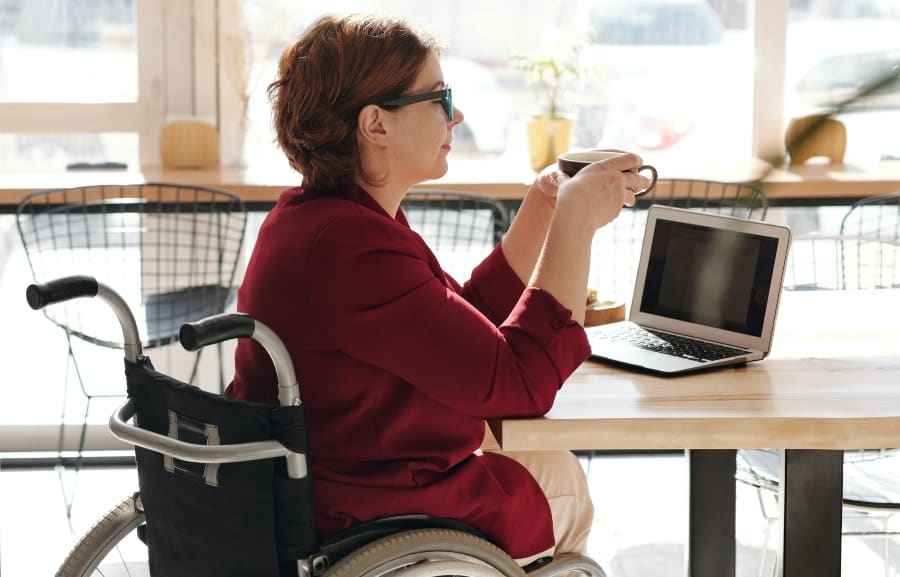New Which? and RiDC advice for disabled people booking tickets and attending events
A survey by the Research Institute for Disabled Consumers (RiDC) and Which? has revealed disabled consumers’ experience poor accessibility when booking tickets and attending some live events.
Ticketing sites, venues, and organisers have a responsibility under the Equality Act 2010 to ensure people with disabilities can access their events, but some companies could be falling short of their responsibilities, says RiDC.
From their survey findings, RiDC and Which? address some of the issues disabled consumers face and how to take action if discrimination is experienced when booking or attending an event.
The survey found that half of those who had problems when booking tickets said the ticketing company did not offer accessible seats as an option. Many participants expressed frustration that they were not able to book accessible seats online, resorting to calling phone lines with lengthy queues and odd opening hours.
As a result, some participants described how they have missed out on tickets for popular shows. Which? understands that when it comes to accessible tickets, it is generally up to the venue where they are sold.
A lack of information about access at events or venues when booking tickets was also a widely reported problem. Two in five who had booking issues said they were not given clear information about access at the venue or about accessible parking.
Three in ten who had problems at an event said they turned up to find there was no accessible parking available.
Venues often offer a complimentary carer or personal assistance (PA) ticket for those with access needs. Many ask for evidence of eligibility, such as proof of Personal Independence Payment (PIP) or a Nimbus Access Card, when booking PA seats. Many participants shared their frustrations with having to repeatedly provide documents when trying to book, especially with fast-selling tickets.
In addition, three in 10 who had problems booking tickets said their issue was with Ticketmaster. Some participants explained how they have struggled to use the Ticketmaster website with their screen readers.
Ticketmaster told RiDC that it believes every fan should have equal access to events. It says it made all accessible tickets available to buy online in 2019.
“We have a simple process where fans submit their specific requirements once and the information is then stored securely for all future purchases,” Ticketmaster said. “The accessibility of our websites remains one of our top priorities – but we can always do better, and our work here never stops.”
Moreover, half of disabled people who attended a music, theatre, comedy, or sports event in the past year had access issues at the venue.
Two in five who had problems at a venue said there was poor access into the event. A quarter of those with issues also said there were no accessible toilets, while one in five said the bars, food, or merchandise stalls were not accessible.
Seats with poor views were also a problem. Three in 10 who had issues at their event said their accessible seats had an obstructed or poor view, while one quarter said the accessible seats were far away from the stage.
Not all event companies are guilty of poor access or customer service, underlines RiDC. The survey also heard from disabled consumers about their positive experiences at events, where access was approached proactively by venues and organisers.
Festivalgoers offered their thoughts too: “Good panelling at festivals makes it so much easier to use a scooter. Some festivals also have dedicated raised platforms so disabled people are safe from pushing and can actually see the stage.”
Under the Equality Act 2010, all event and ticketing companies must make reasonable adjustments to ensure disabled consumers can buy tickets and attend events.
For those that have had a bad experience at an event, RiDC says the first step is to contact the event organisers.
RiDC and Which? advise setting out what happened, with any supporting evidence such as photos or videos, and take note of any members of staff involved. It’s useful to keep a copy of your complaint and the date it was submitted to them. People looking for refunds will need to make it clear in the complaint.
It is possible to request a user’s personal data from the company or event organiser, which can help to piece together what exactly has gone wrong. Also, customers can ask the company to provide any data in relation to the complaint, they add.
If the company or event organiser is part of a regulatory body, it’s worth contacting them too. The Society of Ticket Agents and Retailers represents most primary ticket sellers and can help resolve disputes between its members and ticket buyers.
RiDC and Which? also say, that those whose complaint isn’t dealt with adequately, they have the option of taking legal action through a small claims court. This can be a complicated and costly process and RiDC and Which? advise that legal advice is sought to go down this route.
Which? offers a legal advice service if you’re considering taking legal action.
The time limit for bringing a claim is six months from the date of the unlawful act. A legal claim could result in a payout or a court order that demands the company changes its discriminatory policy, say RiDC and Which?.
AccessAble, a website that enables users to find wheelchair friendly venues and check out disabled access and facilities, has launched a survey to gather valuable insights that will shape the future of its work in providing comprehensive accessibility information and enhance accessibility for everyone.


